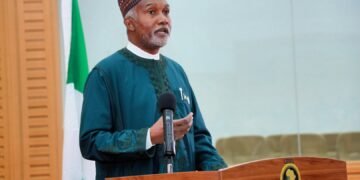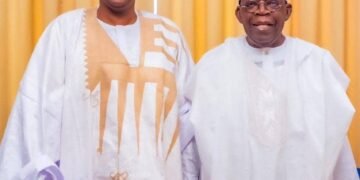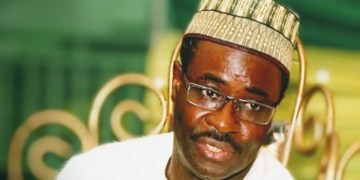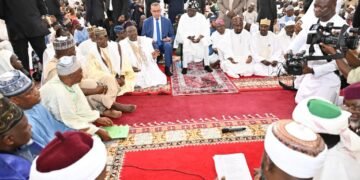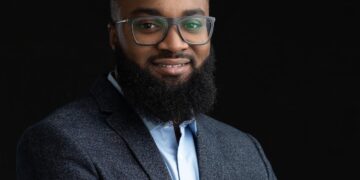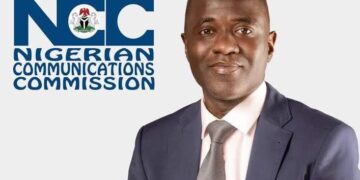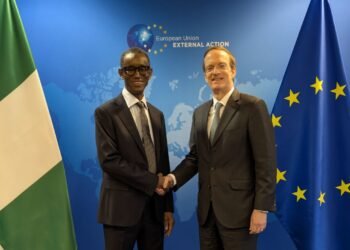By Richard Ogundiya
Population dynamics suggest that good economic development policies in urban areas bring about higher standards of living, but it is different in rural areas where rapid population growth results in small or no growth in per capita income. Nigeria’s inequality problem is not solely a lack of income, but rather is characterized by a vicious cycle of powerlessness, stigmatization, exclusion and material deprivation, which all mutually reinforce each other. The changing demographics and associated implications for employment and opportunities is detrimental to economic growth, peace and stability; President Buhari’s government recognizes the imperative of maintaining order and security, thus its dedication to supporting programs that can restore human dignity and foster social cohesion.
Nigeria is fast becoming a predominantly youthful society with high rate of unemployment; many young people graduate from school without the needed skills or competencies that would enable them function in today’s society. The impending youth bulge presents a great opportunity for economic development because it could improve productivity and engender innovation. This is the motive behind N-Power, the FG’s employability and enhancement programme aimed at imbibing the learn-work entrepreneurship culture amongst the youths to yield economic dividends. Globally, youth unemployment is three times higher than that of adults; this is a problem in developing and developed countries alike.
Young people (ages 18-35), account for a significant portion of our country’s population, which means that they would make up the future workforce as well as determine the strength of the economy. Providing them with better and equal opportunities in the job market and encouraging the acquisition of necessary skills is critical for achieving overall development objectives.
Since inception, N-Power has deployed over 500,000 graduates to serve in teaching, health, agriculture, tax and monitoring departments. The process is nimble: Candidates register and select preferred vocation via an online portal, successful applicants are given adequate training in their areas of interest, the Federal Government provides them with devices containing relevant content to help facilitate continuous learning and they receive N30,000 in monthly stipends.
It’s not enough to focus on just educated youths, so through N-Build – a programme for non graduates across the 36 states, 26,000 people will be equipped with technical know-how across automobile, hospitality and technology sectors.
N-Creative, the arm that caters for the country’s burgeoning entertainment and innovation industries hopes to train over 5,000 young talents in animation, graphic design, post-production and script writing.
Nigeria recognizes its role in the current global creative explosion and with more local content and talents in high demand, N-creative fills the gap. At the end of the training, some participants will get local and international internship opportunities while others will be linked to job and market opportunities.
Through it ‘Every Child Counts’ policy, N-Power Junior facilitates practical, creative and innovative skills that will enable children to be catalyst of Nigeria’s emerging economy. The scheme is on a mission to remodel 10,000 schools every year, with ultra modern classrooms, laboratories and learning resource centers.
Entrepreneurship is one of the most important drivers for job creation. Moreover, social entrepreneurship offers not only a path for young dreamers to transform their own lives, but also a way to empower others. When given the space and opportunity to do so, young people turn their energy and creativity towards solving today’s challenges and tomorrow’s problems. N-Power affords the Nigerian youth an opportunity to expand their horizons, get them looking outside of the bubble in which they live, and gives them life tools required to succeed in today’s workforce.
Richard Ogundiya is a journalist and researcher resident in Lagos.THE N-POWER MODEL: HOW A BULK OF NIGERIA’S UNEMPLOYED GRADUATES ARE FINDING HOPE
Population dynamics suggest that good economic development policies in urban areas bring about higher standards of living, but it is different in rural areas where rapid population growth results in small or no growth in per capita income. Nigeria’s inequality problem is not solely a lack of income, but rather is characterized by a vicious cycle of powerlessness, stigmatization, exclusion and material deprivation, which all mutually reinforce each other. The changing demographics and associated implications for employment and opportunities is detrimental to economic growth, peace and stability; President Buhari’s government recognizes the imperative of maintaining order and security, thus its dedication to supporting programs that can restore human dignity and foster social cohesion.
Nigeria is fast becoming a predominantly youthful society with high rate of unemployment; many young people graduate from school without the needed skills or competencies that would enable them function in today’s society. The impending youth bulge presents a great opportunity for economic development because it could improve productivity and engender innovation. This is the motive behind N-Power, the FG’s employability and enhancement programme aimed at imbibing the learn-work entrepreneurship culture amongst the youths to yield economic dividends. Globally, youth unemployment is three times higher than that of adults; this is a problem in developing and developed countries alike.
Young people (ages 18-35), account for a significant portion of our country’s population, which means that they would make up the future workforce as well as determine the strength of the economy. Providing them with better and equal opportunities in the job market and encouraging the acquisition of necessary skills is critical for achieving overall development objectives.
Since inception, N-Power has deployed over 500,000 graduates to serve in teaching, health, agriculture, tax and monitoring departments. The process is nimble: Candidates register and select preferred vocation via an online portal, successful applicants are given adequate training in their areas of interest, the Federal Government provides them with devices containing relevant content to help facilitate continuous learning and they receive N30,000 in monthly stipends.
It’s not enough to focus on just educated youths, so through N-Build – a programme for non graduates across the 36 states, 26,000 people will be equipped with technical know-how across automobile, hospitality and technology sectors.
N-Creative, the arm that caters for the country’s burgeoning entertainment and innovation industries hopes to train over 5,000 young talents in animation, graphic design, post-production and script writing.
Nigeria recognizes its role in the current global creative explosion and with more local content and talents in high demand, N-creative fills the gap. At the end of the training, some participants will get local and international internship opportunities while others will be linked to job and market opportunities.
Through it ‘Every Child Counts’ policy, N-Power Junior facilitates practical, creative and innovative skills that will enable children to be catalyst of Nigeria’s emerging economy. The scheme is on a mission to remodel 10,000 schools every year, with ultra modern classrooms, laboratories and learning resource centers.
Entrepreneurship is one of the most important drivers for job creation. Moreover, social entrepreneurship offers not only a path for young dreamers to transform their own lives, but also a way to empower others. When given the space and opportunity to do so, young people turn their energy and creativity towards solving today’s challenges and tomorrow’s problems. N-Power affords the Nigerian youth an opportunity to expand their horizons, get them looking outside of the bubble in which they live, and gives them life tools required to succeed in today’s workforce.
Richard Ogundiya is a journalist and researcher resident in Lagos.

